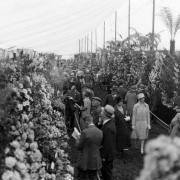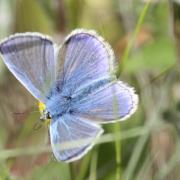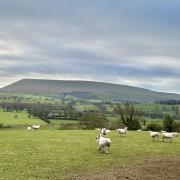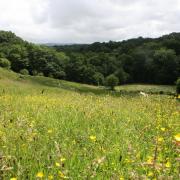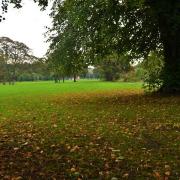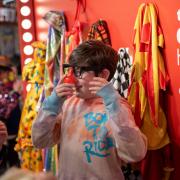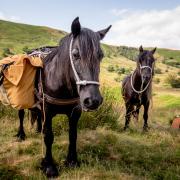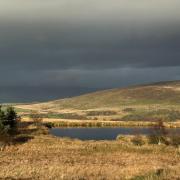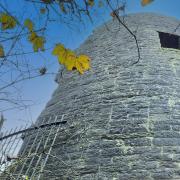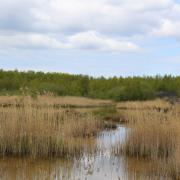We visit Penny Farm, a centre in Blackpool that rescues and rehabilitates horses and gets them galloping back to health. Emma Mayoh reports

It is hard to believe any of the animals at World Horse Welfare Penny Farm Rescue and Rehoming Centre have suffered long term neglect and abuse. But many of the ponies and horses at the Blackpool site have been rescued from tragic situations by the charity. Cases have ranged from single ponies who have been left in a field with no food, water or shelter to large groups who have had to be rescued. For some animals, it is a race against time to get them the care they need.
‘Some of the animals come to us through prosecutions and others come when we feel a horse isn’t receiving the correct care,’ said Roly Owers, chief executive of World Horse Welfare, the international horse charity that improves the lives of horses in the UK and around the world through education, campaigning, and hands-on care.
‘We receive thousands of calls and we have field officers who do visits so we can take action if it is necessary. For some owners, it may be that they just need advice. Taking an animal away is a last resort for us. We want to be able to educate and help people take proper care of the horses. It’s about making the right choice for the welfare of an animal.’
World Horse Welfare is a leading international horse charity and also the largest equine rescue and rehoming charity in the UK. The charity has four rescue and rehoming centres around the UK and, since it opened in 2001, Penny Farm has taken in thousands of vulnerable horses. Each horse undergoes intensive rehabilitation with the centre’s dedicated staff and volunteers before joining the charity’s rehoming scheme to find a loving new home.

Penny Farm will always be a special place for Barry Johnson, chairman of trustees. Barry, who lives in Bilsborough, was asked to be the farm vet when the centre first opened and continued to do so until his retirement in 2007. He spent many years helping horses at Penny Farm.
‘I have been interested in horse welfare for many years,’ said Barry, who was also the president of the Royal College of Veterinary Surgeons as well as being a member of the World Horse Welfare Council. ‘When the centre was being set up I really wanted to be involved as it is something that is important to me.
‘The work that is done here is essential and important to making sure horses are well-cared for. When I retired, I really missed it. It is a job I loved doing which is why I wanted to come back as the chairman. It means I can still help and have an influence, which means a lot.’
Some of the horses go to farms or private homes when they are rehabilitated but others become working horses. One horse, Penny, even became a military working horse in the Royal Horse Artillery. Penny was the first horse to be taken in at Penny Farm. She was emaciated, completely unhandled, had bad feet and was covered in lice. After rehabilitation, the horse worked as part of the gun team carrying one of six WW1 guns with the Kings Troop. Penny worked on many royal occasions including the Queen Mother’s funeral, Kate and William’s wedding, the gun team that fired the salute to mark the birth of Prince George and the Queen’s Jubilee celebrations. She was retired back to Penny Farm.

‘This really showed how a poorly cared for horse can go on to do great things,’ said Barry. ‘Penny became an ambassador for the charity and she has proved that rescued horses can go on to have a useful working career and that they can make a really positive difference.’
Anyone from horse enthusiasts to first time owners have rehomed the horses. There are also high profile people who are taking care of the animals. Comedian John Bishop and his wife, Melanie, recently rehomed four horses from Penny Farm. Dora, Amara, Indie and Mable, had suffered terrible neglect. But they have now settled in with the couple’s other rescue pets, which include two English bull terriers and a pot-bellied pig.
‘Melanie and I share a love of animals of all shapes and sizes and foster the belief that there are so many animals who have been neglected or abused that rehoming is the only logical option, explained John. ‘I would encourage anyone who is in a position to have any animal to look at rehoming before buying.
‘Growing up, I never thought I would have a field full of horses but owning them isn’t rocket science – you just need a bit of common sense and a good sense of humour. They’re strong-willed, unpredictable and impulsive so it’s a lot like bringing up children.’
The couple didn’t plan to rehome four horses but due to their different personalities, it was a good idea to keep them together.
Melanie said: ‘Amara had a really tough start in life so it’s great to see that she still has the confidence to throw her weight around a bit. The plan wasn’t originally to have four but the little herd we rehomed now feel like they belong together.
‘The team at Penny Farm have been flexible and helped us every step of the way. We are delighted that they were able to match us with horses who perfectly suit what we were looking for.’
None of the £400,000 a year needed to keep Penny Farm going comes from government grants. Instead, it comes from bequests, donations, adopting a horse and fundraising events. There are also a number of volunteers and staff who dedicate their time to keeping Penny Farm running. It is these people that Barry believes are the real heroes.
‘We couldn’t do it without them,’ he said. ‘The people at Penny Farm work really hard to make sure our horses receive the best care and a successful rehabilitation.
‘We are very lucky to have such wonderful staff and volunteers who make such a huge contribution to what we do.’




